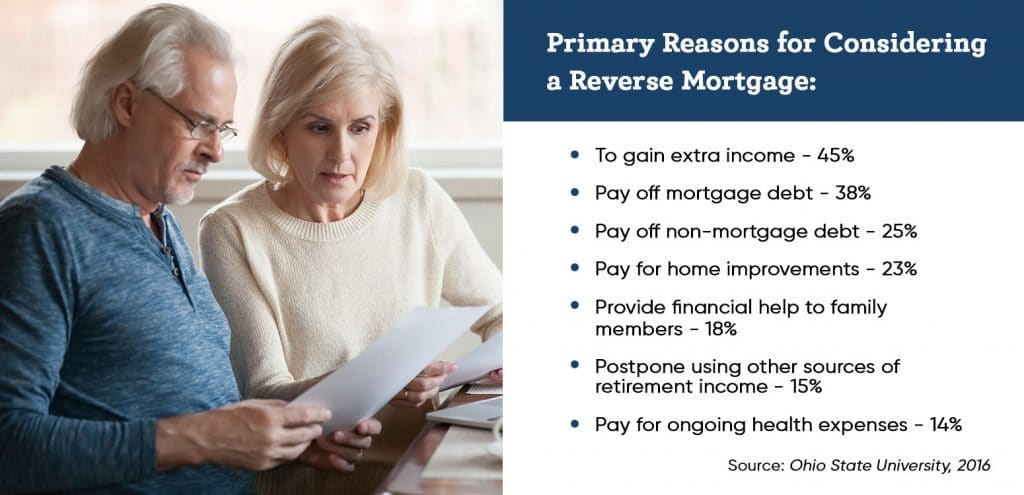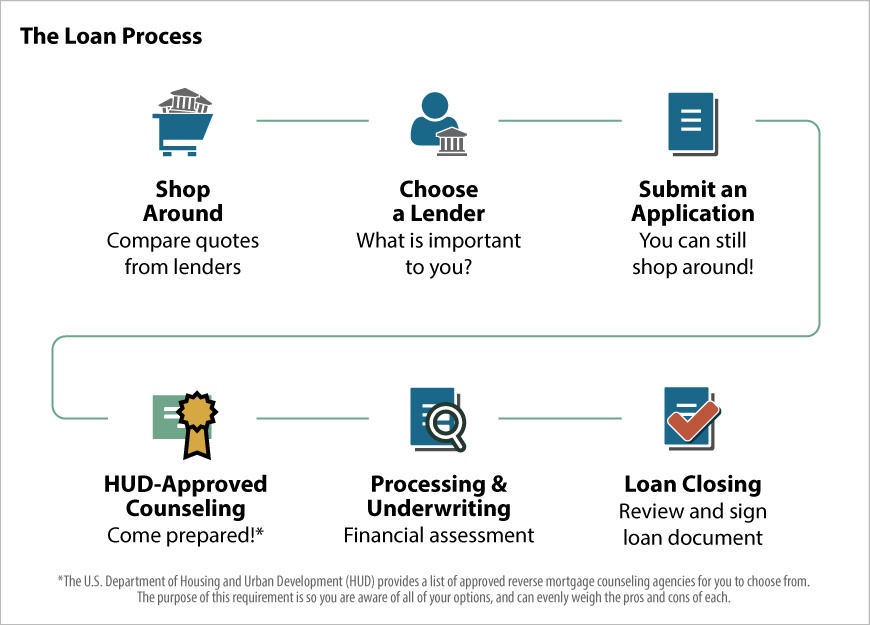Empower Your Retired Life: The Smart Means to Acquisition a Reverse Home Loan
As retirement techniques, several individuals seek efficient approaches to improve their monetary self-reliance and well-being. Among these strategies, a reverse mortgage arises as a sensible choice for home owners aged 62 and older, enabling them to touch right into their home equity without the necessity of regular monthly repayments.
Recognizing Reverse Home Loans
Recognizing reverse home mortgages can be important for property owners looking for financial versatility in retired life. A reverse mortgage is a monetary product that enables qualified house owners, normally aged 62 and older, to convert a part of their home equity into cash money. Unlike standard mortgages, where borrowers make regular monthly payments to a lender, reverse mortgages make it possible for property owners to obtain settlements or a round figure while keeping ownership of their residential or commercial property.
The amount readily available with a reverse home mortgage depends upon a number of factors, consisting of the house owner's age, the home's value, and present rate of interest. Notably, the funding does not have to be paid back until the house owner markets the home, vacates, or dies.
It is important for potential debtors to understand the implications of this financial item, including the influence on estate inheritance, tax considerations, and ongoing responsibilities connected to property upkeep, taxes, and insurance. Furthermore, counseling sessions with accredited professionals are often needed to make certain that debtors fully comprehend the terms of the lending. On the whole, a thorough understanding of reverse mortgages can encourage home owners to make enlightened decisions concerning their financial future in retired life.
Advantages of a Reverse Home Mortgage
A reverse home loan supplies numerous compelling advantages for eligible house owners, especially those in retirement. This economic device permits senior citizens to convert a part of their home equity right into money, providing essential funds without the demand for regular monthly mortgage repayments. The cash obtained can be used for different purposes, such as covering clinical expenditures, making home enhancements, or supplementing retirement income, thus enhancing general monetary versatility.
One considerable benefit of a reverse home loan is that it does not call for payment till the property owner relocates out, offers the home, or passes away - purchase reverse mortgage. This function allows retirees to preserve their way of life and fulfill unforeseen costs without the burden of monthly repayments. Furthermore, the funds obtained are commonly tax-free, enabling homeowners to use their money without fear of tax ramifications
Moreover, a reverse home loan can supply assurance, knowing that it can act as a monetary security internet during tough times. Home owners also maintain possession of their homes, ensuring they can proceed living in a familiar atmosphere. Inevitably, a reverse mortgage can be a critical funds, encouraging retired people to manage their financial resources effectively while enjoying their gold years.
The Application Process
Browsing the application process for a reverse home mortgage is a crucial step for property owners considering this economic alternative. The very first stage involves evaluating qualification, which usually requires the home owner to be at the very least 62 years old, very own the residential or commercial property outright or have a reduced mortgage equilibrium, and inhabit the home as their key residence.
As soon as qualification is confirmed, home owners should undertake a counseling session with a HUD-approved therapist. This session guarantees that they totally recognize the ramifications of a reverse home loan, consisting of the obligations involved. purchase reverse mortgage. After Get the facts finishing counseling, candidates can proceed to gather required documents, consisting of evidence of revenue, assets, and the home's worth
The next action requires submitting an application to a lending institution, who will examine the financial and home qualifications. An assessment of the home will likewise be conducted to establish its market price. If authorized, the lender will certainly provide car loan terms, which must be reviewed meticulously.
Upon approval, the closing procedure complies with, where final documents are authorized, and funds are disbursed. Recognizing each stage of this application procedure can substantially improve the house owner's self-confidence and decision-making concerning reverse home mortgages.

Secret Factors To Consider Prior To Investing In
Purchasing a reverse home loan is a significant economic choice that calls for careful consideration of several key factors. Understanding your qualification is vital. Home owners must be at least 62 years of ages, and the home has to be their main home. Assessing your economic needs and objectives is just as vital; identify whether a reverse home loan aligns with your lasting strategies.

A reverse home mortgage can affect your qualification for specific federal government benefits, such as Medicaid. By extensively reviewing these considerations, you can make a more enlightened decision regarding whether a reverse home loan is the best economic technique for your retired life.
Maximizing Your Funds
As soon as you have secured a reverse mortgage, efficiently handling the funds comes to be a priority. The versatility of a reverse home mortgage permits homeowners to make use of the funds in numerous means, however critical planning is important to maximize their benefits.
One vital strategy is to produce a budget that describes your financial objectives and monthly expenses. By identifying essential expenses such as health care, real estate tax, and home upkeep, you can designate funds accordingly to make certain long-term sustainability. In addition, take into consideration utilizing a section of the funds for financial investments that can generate earnings or value gradually, such as common funds or dividend-paying supplies.
An additional crucial element click to read more is to maintain an emergency fund. Reserving a reserve from your reverse mortgage can help cover unanticipated expenses, supplying satisfaction and economic stability. Consult with an economic consultant to discover possible tax obligation implications and just how to incorporate reverse home loan funds into your overall retired life approach.
Eventually, prudent monitoring of reverse home mortgage funds can improve your monetary security, allowing you to appreciate your retirement years without the anxiety of economic unpredictability. Cautious planning and notified decision-making will make sure that your funds work efficiently for you.
Final Thought
In verdict, a reverse mortgage provides a feasible economic strategy for seniors seeking to improve their retired life experience. By converting home equity into available funds, individuals can deal with important expenditures and safe and secure added economic sources without incurring month-to-month repayments.
Understanding reverse mortgages can be critical for home owners looking for economic flexibility in retired life. A reverse mortgage is a monetary product that allows eligible property owners, generally aged 62 and older, to transform a part of their home equity into money. Unlike typical home mortgages, where debtors make month-to-month repayments to a lending institution, reverse mortgages enable homeowners to receive repayments or a swelling sum while keeping ownership of their building.
Overall, a detailed understanding of reverse mortgages can empower house owners to make enlightened choices regarding their monetary future in retirement.
Consult with an economic consultant to explore feasible tax implications and how to integrate reverse home mortgage funds right into your general retirement approach.